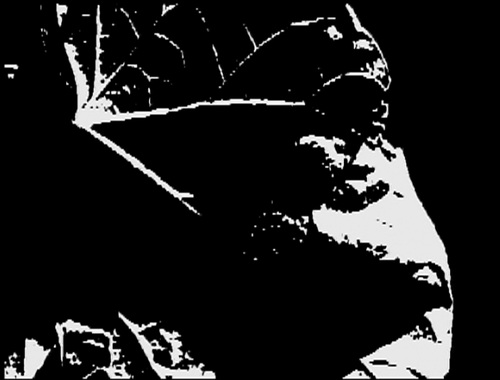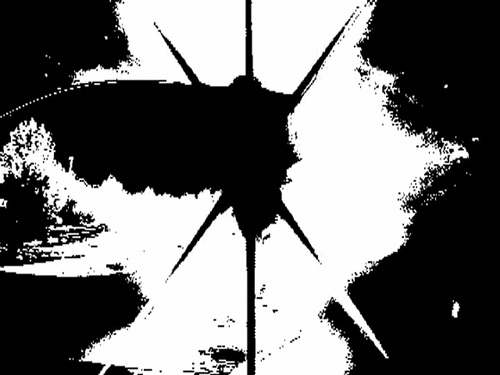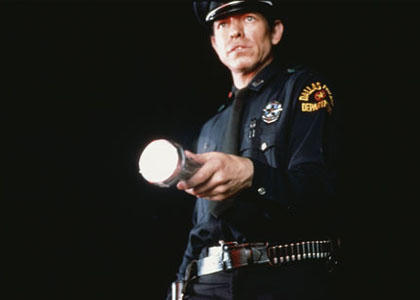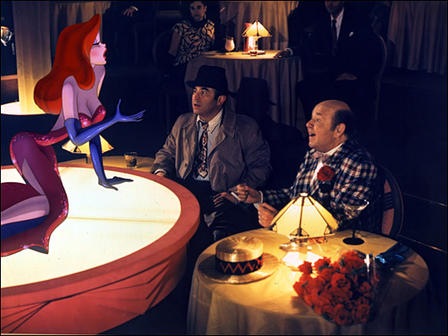From the Chicago Reader (April 11, 1997). I’ve suppressed the title/headline originally given to this piece, which I greatly regretted at the time, “Tortured Genius”. There are a few contributions of my own here that I also regret, but, for the record, I’ve decided to let this text stand. — J.R.
Films by Mohsen Makhmalbaf

It’s tempting but dangerous to approach artists from exotic cultures in terms of more familiar reference points — such as comparing Zhang Yimou’s Ju Dou to The Postman Always Rings Twice or reading Souleymane Cisse’s Brightness as if it were an African Star Wars, as some American and English critics have done. Yet to describe the styles and visions of the two major Iranian filmmakers of the 80s and 90s, Abbas Kiarostami and Mohsen Makhmalbaf, I’ve been exploring comparisons to Leo Tolstoy and Fyodor Dostoyevsky — a project obviously fraught with booby traps, but one that clarifies some of the important differences between these two major figures.
Last June the Film Center brought us seven features and nine short films by Kiarostami, and this month it’s showing ten features and one short documentary by Makhmalbaf, as well as three documentaries about him (one of them Kiarostami’s remarkable Close-up). Read more
From the Chicago Reader (April 29, 1988). Note: The Andrew Noren stills are copyrighted by his estate. — J.R.

THE LIGHTED FIELD
*** (A must-see)
Directed by Andrew Noren.
I’m a light thief and a shadow bandit. I deal in retinal phantoms. Film is illusion, period, however you choose to see it — shadows of human delights and adversities or raging conflicts of emulsion grains. We see only “films” of films, as all of our sight and sensing is illusion, the phantom movies of our encounter with the world, which, remember, is equally phantom, trompe l’oeil of that clown and ghostmeister, the sun.
The lovers, light and shadow, and their offspring space and time are my themes, working with their particularities is my passion and delight. — Andrew Noren

The difference between narrative and nonnarrative filmmaking is a little bit like the difference between team sports and individual exercise. In contrast to a collective game with a beginning, a middle, and an end, personal exercise tends to be more rhythmically repetitive, involved more with process and with cycles than with development, and moves with a steadier pulse that eschews the more unpredictable dynamics of drama and suspense.
Andrew Noren’s lovely 59-minute The Lighted Field — part five of his ongoing work The Adventures of the Exquisite Corpse, which has engaged him over the past two decades — belongs mainly to the nonnarrative realm. Read more
From the Chicago Reader (September 23, 1988). — J.R.


1. A front-page story in the August 24 Variety begins, “Last week’s Republican National Convention garnered the worst network ratings of any convention in TV history.” An interesting piece of information, but not, as far as I know, one that was noted in daily newspapers, weekly newsmagazines, or on TV. Why does one have to go to Variety to discover this morsel of recent history? Perhaps it has something to do with Variety‘s status as a trade journal. Mainstream print and TV journalism may be part of the entertainment business, but they’re not generally about entertainment in the sense that a publication like Variety is.
The story in Variety goes on to report that both of this summer’s political conventions significantly boosted video rentals; a couple of large video rental chains reported increases in business between 30 and 57 percent. Do we interpret this as an opting for entertainment over news coverage, or as a preference for one kind of entertainment over another? Do we read it as a sign of desperate cynicism, or as a sign of healthy liberation? Or, if we read it as the latter, was it liberation only from the standard TV shows that the conventions were preempting? Read more





